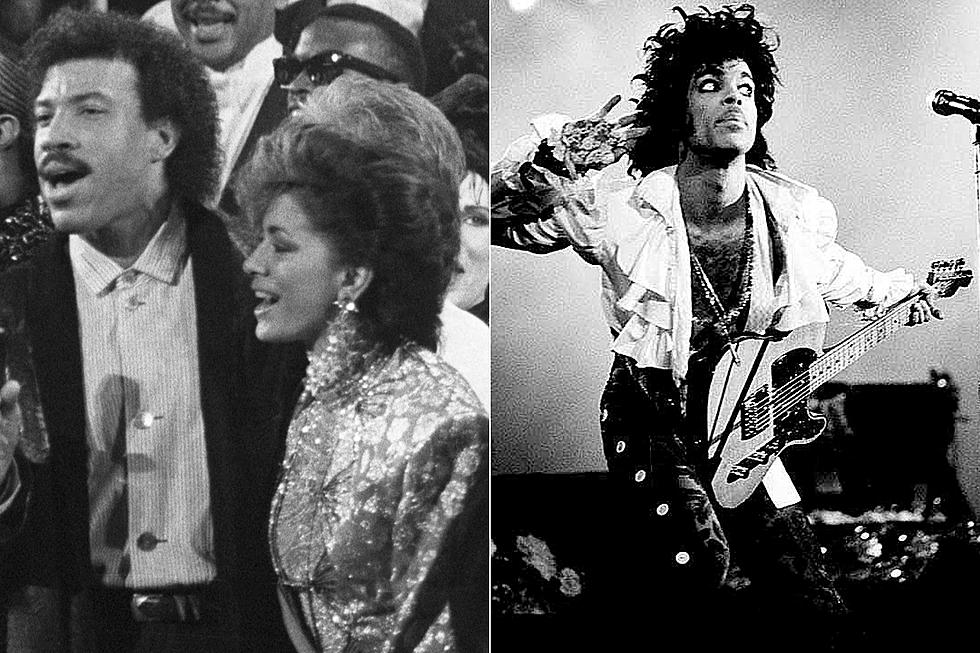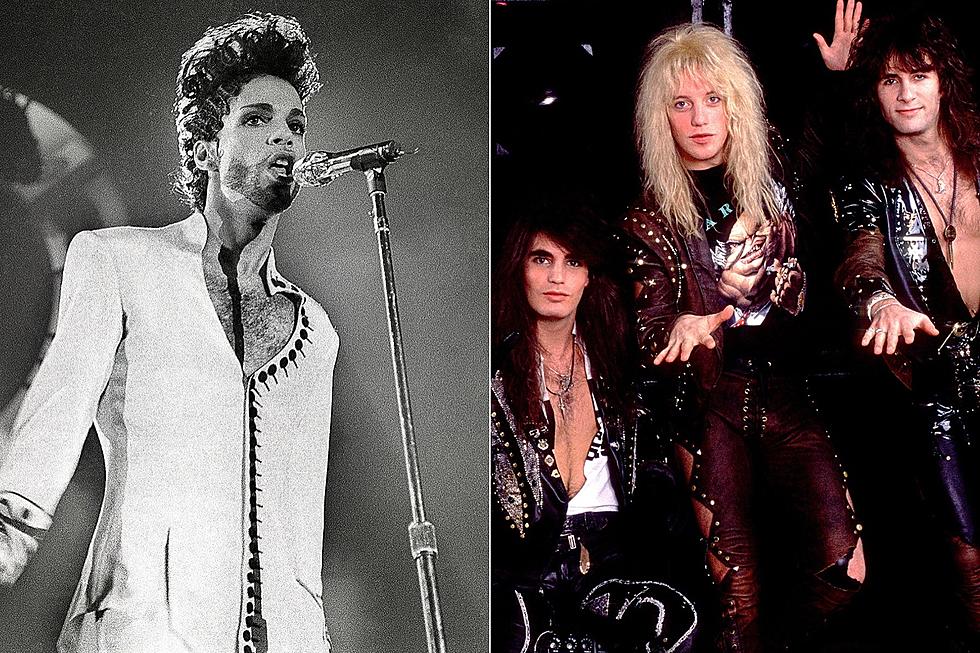
Prince Unwittingly Began His Next Musical Phase on ‘When 2 R in Love’
"When 2 R in Love," a tender romantic's reminiscence, really didn't sound like it belonged on Prince's shelved The Black Album. Instead, it served as a bridge to everything that followed.
Prince pulled The Black Album just weeks before it was set to hit stores, forcing Warner Bros. to scrap some half of a million copies. He'd suddenly decided – perhaps, it's been speculated, after an ecstasy-induced revelation – that the project's aggressively grim content wasn't an accurate reflection of his mindset.
Despite the costs, Prince's label was probably relieved. After all, the superlative Sign 'O' the Times had only been released six months earlier – and, at its worst, The Black Album sounded like an extended meditation on "Housequake," only angrier.
When not devolving into poisonous misogyny ("Bob George"), Prince spent the majority of the record taking on detractors and dissing hip hop – specifically griping at rappers for "talking silly s---" on "Dead On It." He seemed, more than anything, to be grasping for some form of perceived relevancy, despite having released perhaps the best album of his entire career. After years spent absorbing more mainstream pop influences, he dove headlong into the nasty R&B of his early years.
"That was his way of answering those people who said, 'You ain't funky no more,'" former tour manager and Paisley Park Records president Alan Leeds told Rolling Stone in 2016. "It's like, 'Motherf---ers, I can do this in my sleep!' And then he had the so-called epiphany and thought better of it. And his explanation was simply, 'It's an angry album. I made it for the wrong reasons.'"
The Black Album wouldn't see official release until 1994, long after it had become one of the most bootlegged records in music history. Instead, Prince chose to follow Sign O' the Times with Lovesexy, a paean to the other half of his yin-and-yang existence – spirituality. The Black Album went back into the vault, with the exception a single song. Only "When 2 R in Love" made the transition from one project to the next.
Once again, Prince uses water as a symbol for redemption, just as he did in songs like "Purple Rain," "17 Days" and "Computer Blue." The results felt tailor-made for the Stylistics, whose "Betcha By Golly Wow!" later ended up on Prince's 1999 album Emancipation. (Only there's no way a sweet-soul outfit like that would take on the delicious sexuality of "When 2 R in Love," even if Prince's quivering falsetto came straight out of their playbook.) As such, the song never really fit into The Black Album's narrative arc.
If the rest of the record represented Prince's raging id – complete, as Rolling Stone once quipped, with "enough expletives to make the PMRC open a new branch" – then "When 2 R in Love" served a brief turn as centered ego. It made a lot more sense within the more welcoming embrace of Lovesexy.
As Prince began sorting through his two principal desires – with salvation on one side, and sex on the other – he quickly produced eight new songs for this replacement project. That was in marked contrast with its shelved predecessor, which had a far different back story.
Three tracks on The Black Album – "Le Grind," "Bob George" and "2 Nigs United 4 West Compton" – dated back to 1986, having appeared on an acetate pressed for Shiela E.'s birthday, according to PrinceVault. Engineer Susan Rogers confirmed in Prince: Life and Times that the project was actually comprised of "odds and ends, things we would do on a day off. ... Sometimes, he wanted to break away and do something [different] just to get it out of his system."
At some point, Prince would have to get back to his old self, and "When 2 R in Love" represents that moment. It was the only new track, and also the last recorded element for The Black Album – opening the door, quite literally, to what came next.
More From Ultimate Prince










